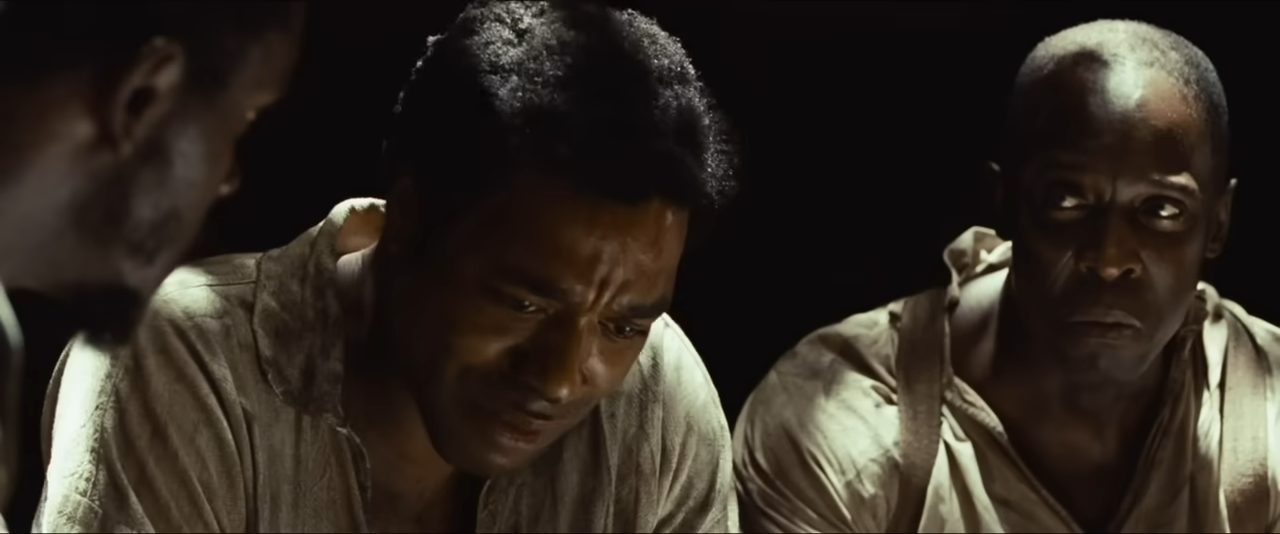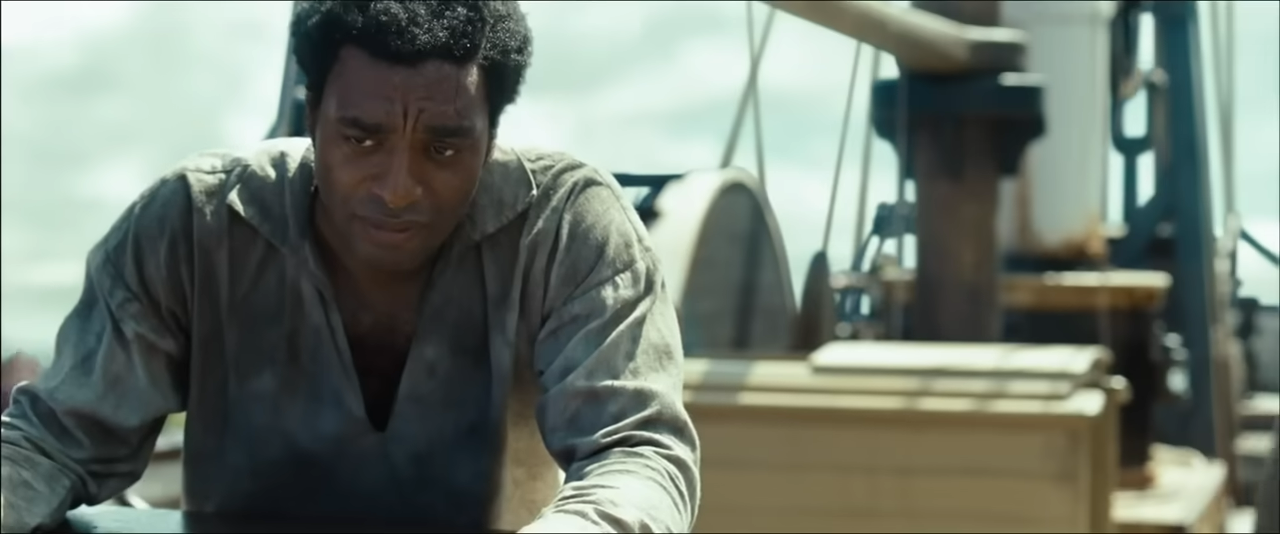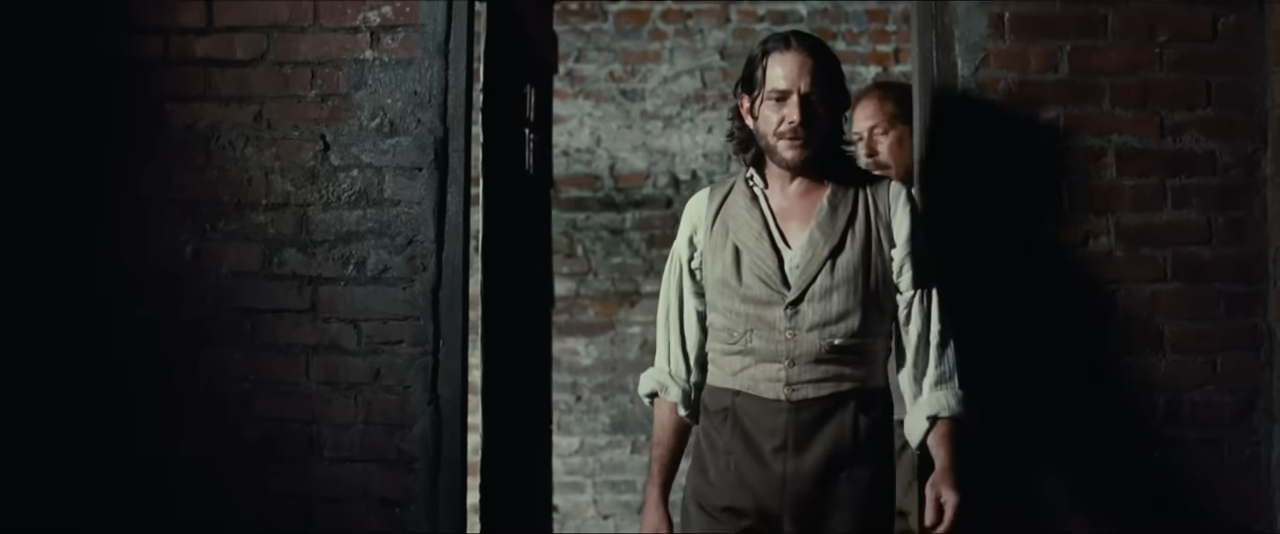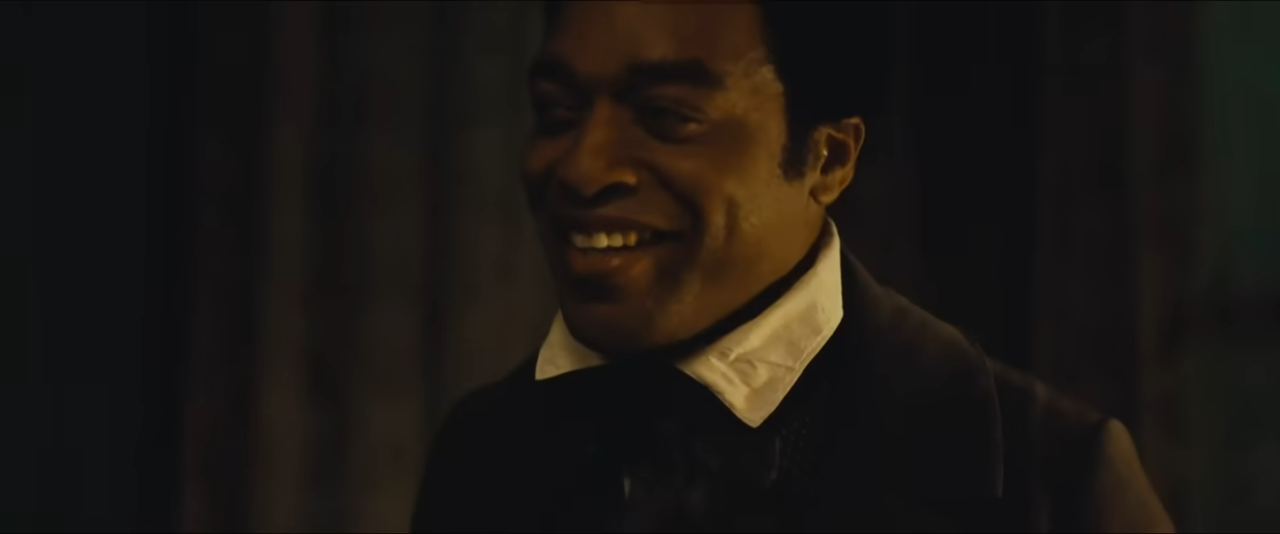12 Years a Slave (2013) Movie Review: A Harrowing Masterpiece

Related Movies:
By Movie Review Expert | Published on May 18, 2025
Introduction to 12 Years a Slave

Directed by Steve McQueen, 12 Years a Slave (2013) is a cinematic triumph that unflinchingly portrays the brutal realities of slavery in 19th-century America. Based on the 1853 memoir by Solomon Northup, the film follows the true story of a free Black man kidnapped and sold into slavery, enduring 12 years of unimaginable hardship. With a stellar cast led by Chiwetel Ejiofor, Michael Fassbender, and Lupita Nyong’o, the film combines historical accuracy with raw emotional power, earning widespread acclaim, including three Academy Awards. This 2000-word review delves into the film’s narrative, performances, themes, cinematography, and lasting impact, making it a must-read for fans of historical dramas and socially conscious cinema.
Plot Summary: A Journey Through Hell and Hope

12 Years a Slave centers on Solomon Northup (Chiwetel Ejiofor), a skilled violinist and free man living in Saratoga, New York, with his family in 1841. Deceived by two men offering a lucrative job, Solomon is drugged, kidnapped, and sold into slavery in the Deep South. Stripped of his identity and renamed “Platt,” he is thrust into a world of relentless cruelty, working on plantations under various masters, including the sadistic Edwin Epps (Michael Fassbender).
The film chronicles Solomon’s 12-year ordeal, highlighting his struggle to maintain his dignity and hope while navigating the horrors of slavery. From the dehumanizing slave markets to the backbreaking labor on cotton fields, the narrative exposes the systemic brutality of the institution. Solomon’s encounters with other enslaved individuals, particularly Patsey (Lupita Nyong’o), underscore the shared trauma and resilience of those enslaved. The film builds toward Solomon’s eventual liberation, a bittersweet victory that underscores the countless others left behind.
The story’s strength lies in its fidelity to Northup’s memoir, offering a firsthand perspective on slavery’s atrocities. Unlike romanticized depictions, 12 Years a Slave presents an unfiltered look at the physical, emotional, and psychological toll of enslavement, making it both a historical document and a gripping drama.

Exceptional Performances That Anchor the Film
The cast of 12 Years a Slave delivers performances that are nothing short of extraordinary, bringing depth and humanity to their roles.
Chiwetel Ejiofor as Solomon Northup

Chiwetel Ejiofor’s portrayal of Solomon is the heart of the film. His Oscar-nominated performance captures the full spectrum of Solomon’s experience— from the joy of his free life to the despair of captivity. Ejiofor’s expressive eyes convey a profound sense of loss and resilience, making Solomon’s journey deeply relatable. His ability to balance stoic endurance with moments of raw vulnerability ensures that viewers remain invested in his fight for freedom.
Michael Fassbender as Edwin Epps

Michael Fassbender’s chilling performance as Edwin Epps is both mesmerizing and terrifying. Epps is a complex villain— a slaveholder whose cruelty is matched only by his insecurity and warped sense of morality. Fassbender imbues Epps with a volatile energy, making every scene with him unpredictable and tense. His portrayal is a stark reminder of the perverse power dynamics that defined slavery.
Lupita Nyong’o as Patsey
Lupita Nyong’o’s debut performance as Patsey earned her a well-deserved Academy Award for Best Supporting Actress. Patsey is a young enslaved woman whose spirit is crushed by Epps’ obsessive abuse. Nyong’o’s heartbreaking portrayal captures Patsey’s fleeting moments of joy and her overwhelming sorrow, particularly in a devastating scene where she begs for death. Her performance is a testament to the strength and tragedy of enslaved women.
Supporting performances by Benedict Cumberbatch, Paul Dano, and Sarah Paulson further enrich the film, each adding layers to the complex social hierarchy of the antebellum South.
Themes: Resilience, Identity, and the Legacy of Slavery
12 Years a Slave is more than a historical drama; it’s a profound exploration of universal themes that resonate across time.
Resilience in the Face of Despair: Solomon’s story is one of survival. Despite unimaginable cruelty, he clings to hope, using his intelligence and resourcefulness to endure. The film celebrates the human spirit’s capacity to persevere, even in the darkest circumstances.
Loss of Identity: The stripping of Solomon’s name and freedom reflects the broader dehumanization of enslaved people. The film examines how slavery sought to erase individual identities, replacing them with commodified roles. Solomon’s determination to reclaim his name symbolizes his refusal to be defined by his captors.
Systemic Injustice: By depicting the legal and social structures that upheld slavery, the film exposes the complicity of an entire society. From indifferent bystanders to profiteering slave traders, 12 Years a Slave challenges viewers to confront the moral failures of the past and their echoes in the present.
Hope and Justice: While the film is unrelentingly grim, it offers a glimmer of hope through Solomon’s liberation. However, this hope is tempered by the knowledge that millions never escaped. The film urges audiences to reflect on the ongoing fight for equality and justice.
Cinematography and Direction: A Visual and Emotional Triumph
Steve McQueen’s direction is masterful, blending artistic vision with historical authenticity. Known for his background in visual art, McQueen uses long, unbroken takes to immerse viewers in the story’s intensity. A particularly harrowing scene, where Solomon is left hanging from a tree, is filmed in a single shot, forcing audiences to witness his suffering in real time.
Cinematographer Sean Bobbitt complements McQueen’s vision with stark, haunting visuals. The lush landscapes of Louisiana’s plantations contrast sharply with the brutality unfolding within them, creating a jarring juxtaposition. The use of natural light and muted colors enhances the film’s gritty realism, while close-up shots capture the characters’ emotional nuances.
Hans Zimmer’s score is understated yet powerful, amplifying the film’s emotional weight without overwhelming the narrative. The sound design, from the crack of whips to the rustle of cotton fields, further immerses viewers in the era.
Historical Accuracy and Cultural Impact
12 Years a Slave stands out for its commitment to historical accuracy. Northup’s memoir, a rare firsthand account of slavery, provides a detailed foundation for the film. McQueen and screenwriter John Ridley preserve the memoir’s key events and tone, ensuring that the story remains authentic. Historical consultants, including scholars of slavery, helped recreate the period’s settings, from clothing to plantation layouts.
The film’s release in 2013 sparked widespread discussion about slavery’s legacy and the importance of confronting uncomfortable histories. It has been praised by historians and educators as a valuable teaching tool, offering a visceral depiction of slavery’s horrors. Its cultural impact continues, with the film frequently cited in discussions of race, justice, and representation in cinema.
Why 12 Years a Slave Remains Essential Viewing
12 Years a Slave is not an easy watch, but it is an essential one. Its unflinching portrayal of slavery challenges viewers to grapple with the past while reflecting on present-day inequalities. The film’s emotional depth, anchored by powerhouse performances and McQueen’s visionary direction, makes it a landmark in historical filmmaking.
For fans of historical dramas, 12 Years a Slave offers a compelling narrative and meticulous attention to detail. For those seeking thought-provoking cinema, it raises timeless questions about humanity, morality, and justice. Its relevance endures, making it a must-see for anyone interested in powerful storytelling.
Conclusion
12 Years a Slave is a cinematic masterpiece that transcends its historical setting to speak to universal truths. Chiwetel Ejiofor, Lupita Nyong’o, and Michael Fassbender deliver performances that linger long after the credits roll, while Steve McQueen’s direction ensures that the story’s weight is felt. By honoring Solomon Northup’s memoir, the film serves as both a tribute to those who endured slavery and a call to confront its lasting impact.
Whether you’re a cinephile, a history enthusiast, or simply seeking a powerful story, 12 Years a Slave is a film that demands to be seen. Watch it, reflect on it, and let it inspire you to learn more about the history it so vividly portrays.











